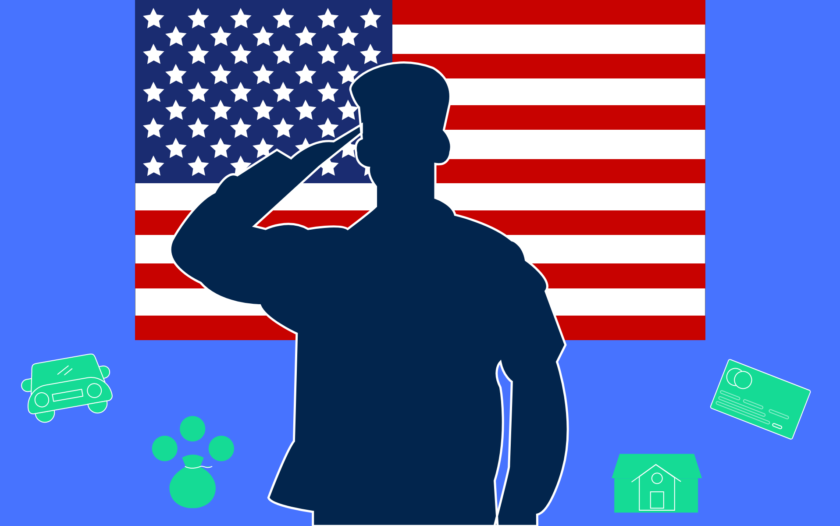How Does Veteran Debt Consolidation Work?
About Kevin
Kevin is a former fintech coach and financial services professional. When not on the golf course, he can be found traveling with his wife or spending time with their eight wonderful grandchildren and two cats.
Read full bio
At a Glance
The process of debt consolidation doesn’t differ for veterans, but former military service men and women do have access to lending sources that are not available to civilians. These lenders can help with home ownership, lowering interest rates on existing debt, and the pursuit of higher education. If you are a veteran, these are all available to you.
Home Ownership is Relevant for Some Veteran’s Loans
Before we get to credit card debt consolidation for veterans, let’s chat a bit about home ownership. If you’re a veteran, you’re eligible for a VA loan to buy a house. If you went that route and already own a home, you could be eligible for two other programs that can help you reduce your debt. Check into the following:
Interest Rate Reduction Finance Loan (IRRRL)
The IRRRL program is offered by the Department of Veteran’s Affairs as an option for veterans to refinance their existing VA home loan to obtain a lower interest rate. This action doesn’t classify as consolidation, but it is a good first step before you break out the debt consolidation calculator to figure out what you can afford for monthly payments.
Military Debt Consolidation Loan
This is the third piece of the puzzle for veterans who are homeowners. If you bought your home with a VA loan, you’re eligible for a Military Debt Consolidation loan (MDCL). This type of loan is backed up by the equity in your home, so make sure you understand the terms and conditions before you agree to it. It is available exclusively for veterans.
How Debt Consolidation Works
Debt consolidation for veterans, outside of the lending options and various grants available to you, works the same as it does for everyone else. Your main objective is to consolidate credit card debt into one lump sum loan, hopefully lowering your interest rate while you’re doing it. The first step in the process is to add up all your outstanding credit card balances.
While you’re doing the math, check the interest rates (APR) on each of your credit cards. Most personal or VA-backed loans offer lower interest rates than credit cards, but some of your cards may have low or even zero interest on them. If that’s the case, consolidation may not be the right choice for you. Consider credit card refinancing instead.
If the VA options listed above don’t work out for you, contact your local bank, or search online for “debt consolidation loans.” They can usually be found with any lender that offers personal loans, which are typically unsecured, so you’ll need to have at least a decent credit score. Most lenders prefer scores of 650 or better, but it is possible to be approved if you’re at 600.
What to do Once You’re Approved
Eliminating credit card debt is a liberating experience, but debt consolidation can be dangerous if you’re not careful. Some lenders will pay off your cards directly, so you never see the money. That’s good. Others may deposit the entire amount into your bank account, leaving it up to you to pay the cards off. Make sure you do that right away before you spend the money.
The final step is self-discipline. After your credit cards are paid, you’ll have plenty of purchase power again. Many individuals, both veterans and non-veterans, start to use those cards again. Don’t do it. Pay off the debt consolidation loan first before you use your credit cards. While that’s happening, get used to paying cash again. That’s how you become debt-free.
Frequently Asked Questions
Are there special loans for veterans?
Yes, there are special loans for veterans. The Department of Veterans Affairs can connect you with lenders for VA loans to buy a home, Interest Rate Reduction Finance loans to refinance your mortgage, and military debt consolidation loans to consolidate credit card debt.
Can the military help with debt?
Yes, active military service people are protected by the Servicemembers Civil Relief Act, which protects interest rates, and the Military Lending Act. There are also several lending options for veterans, including VA home loans and military debt consolidation loans.









